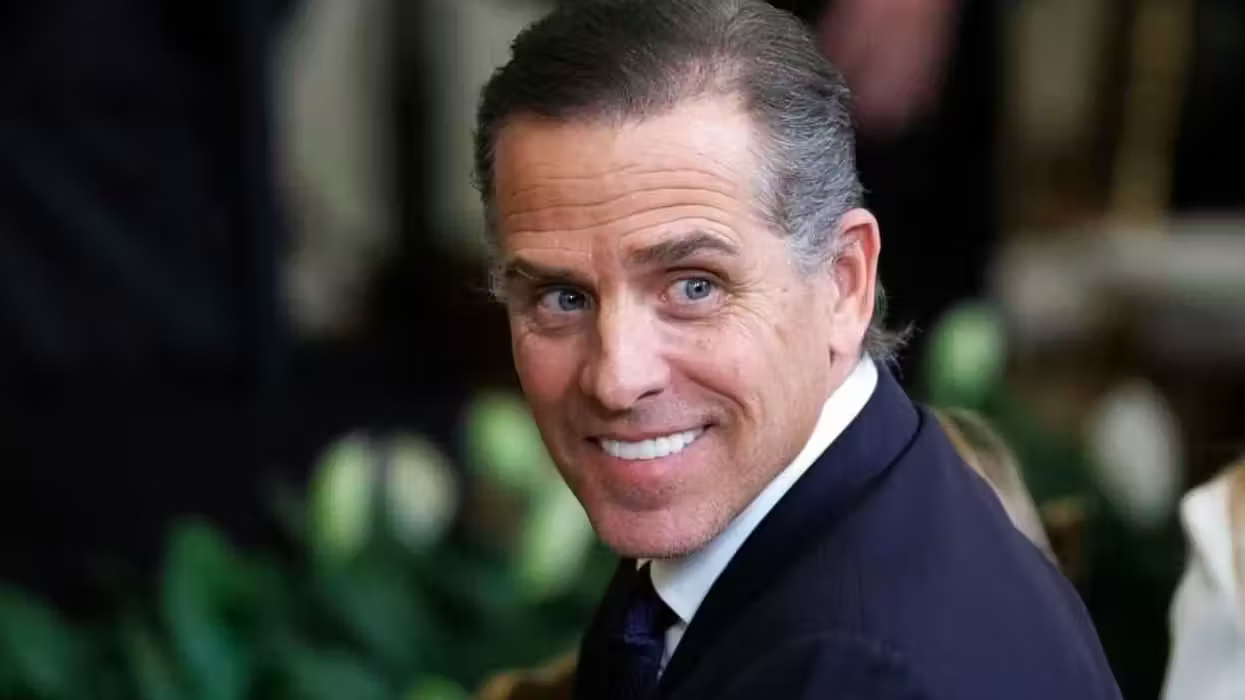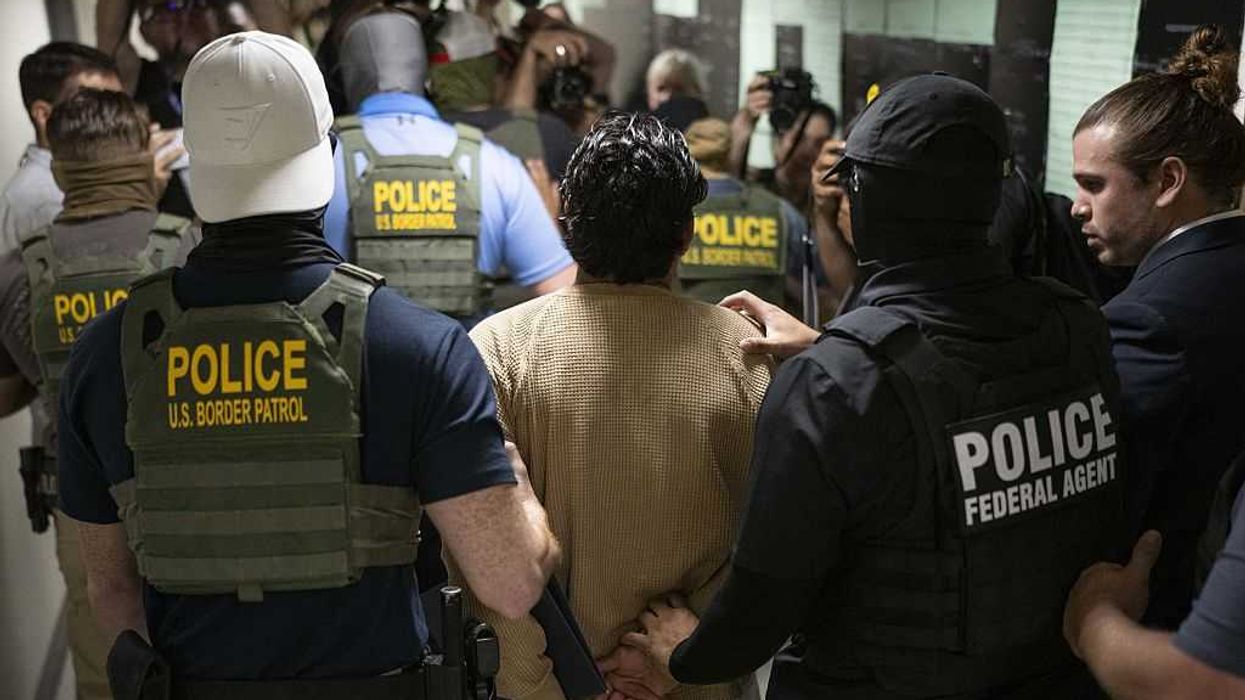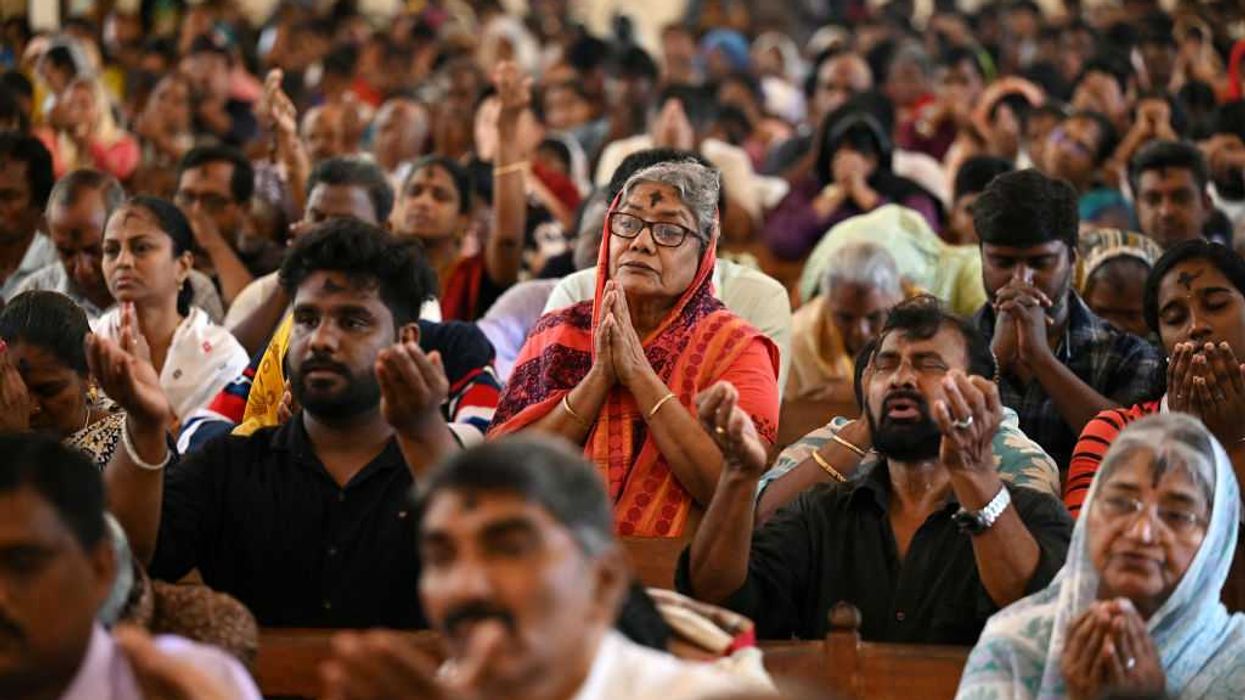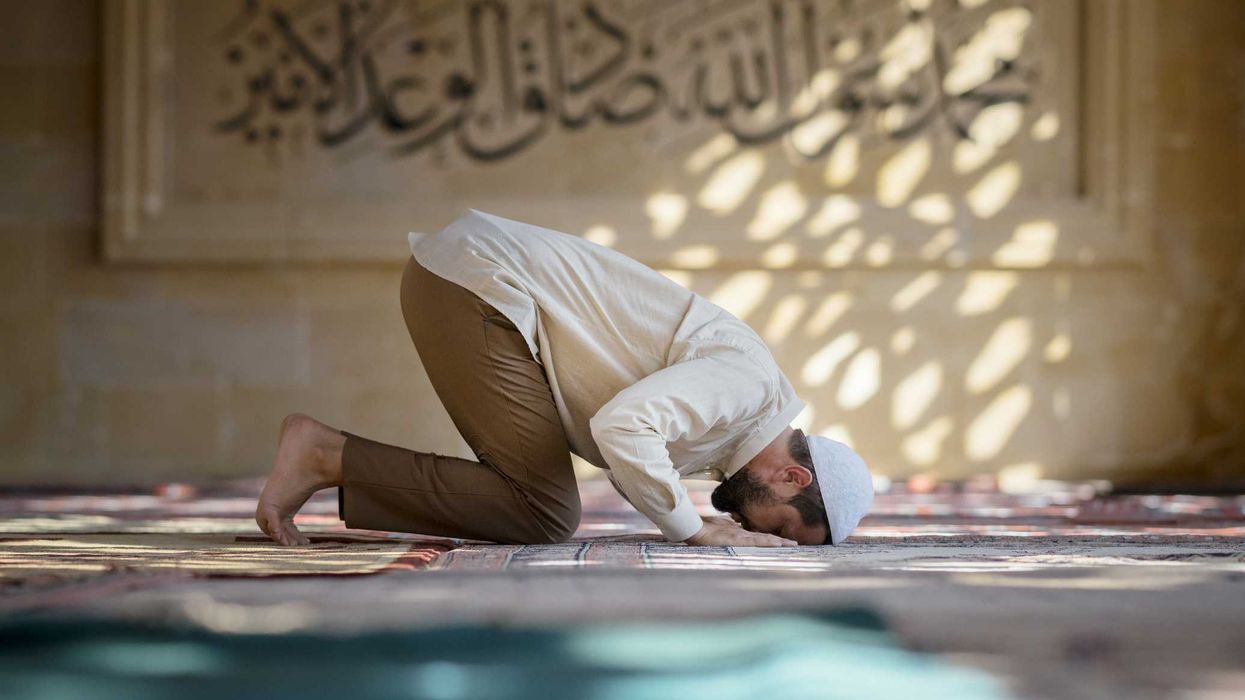
© 2025 Blaze Media LLC. All rights reserved.
Spanish Nurse Becomes First Person to Contract the Ebola Virus Outside of Africa
October 06, 2014
MADRID (TheBlaze/AP) — The first case of a person being infected with the Ebola virus outside of Africa since this historic outbreak began has happened in Spain, the country's health minister said Monday.
The victim is a female nurse who was part of the medical team that treated a 69-year-old Spanish priest who died in a hospital last month after being flown back from Sierra Leone, where he was posted, Health Minister Ana Mato said.
The woman went to the Alcorcon hospital in the Madrid suburbs with a fever and was placed in isolation. Mato said the infection was confirmed by two tests and that the nurse was admitted to a hospital on Sunday.
The woman's only symptom was a fever, Antonio Alemany, Madrid director of primary health care, told a news conference. Alemany said authorities are drawing up a list of people the nurse had contact with.
 The Spanish priest who was diagnosed with the Ebola virus while working in Sierra Leone has been flown back to Spain and taken to a Madrid hospital. The priest died after being transported back to Spain and, more recently, a nurse who helped care for him tested positive for the virus. (AP Photo/Spanish Defense Ministry)
The Spanish priest who was diagnosed with the Ebola virus while working in Sierra Leone has been flown back to Spain and taken to a Madrid hospital. The priest died after being transported back to Spain and, more recently, a nurse who helped care for him tested positive for the virus. (AP Photo/Spanish Defense Ministry)
The Spanish priest the nurse helped treat was Manuel Garcia Viejo, who died Sept. 25, becoming the second Spanish missionary to fall victim to the deadly virus. In August, a 75-year-old Spanish priest, Miguel Pajares, was flown back to Spain from Liberia, but died after being treated with the experimental Ebola medicine ZMapp.
The virus that causes Ebola spreads only through direct contact with the bodily fluids of an infected person who is showing symptoms. In West Africa, the disease has spread quickly to family members who cared for the sick or handled their bodies after death. At this point, World Health Organization estimates that the outbreak has killed more than 3,400 people.
In other Ebola news, Ashoka Mukpo, a 33-year-old photojournalist who was infected while covering the story in Africa, was transported to a hospital in Nebraska for further treatment Monday. This is the fifth American to become infected with the virus.
 An ambulance transports Ashoka Mukpo, who contracted Ebola while working in Liberia, to the Nebraska Medical Center's specialized isolation unit Monday, Oct 6, 2014 in Omaha, Neb., where he will be treated for the deadly disease. Mukpo is an American video journalist who was working in Liberia as a freelance cameraman for NBC News when he became ill last week. (AP/Omaha World-Herald, Ryan Soderlin)
An ambulance transports Ashoka Mukpo, who contracted Ebola while working in Liberia, to the Nebraska Medical Center's specialized isolation unit Monday, Oct 6, 2014 in Omaha, Neb., where he will be treated for the deadly disease. Mukpo is an American video journalist who was working in Liberia as a freelance cameraman for NBC News when he became ill last week. (AP/Omaha World-Herald, Ryan Soderlin)
Meanwhile, a Liberian man with Ebola who started showing symptoms while visiting the U.S. is in critical condition at a Dallas hospital.
U.S. officials are considering whether they should institute other screening options to stop imported cases of Ebola into the country as well after the patient in Dallas flew into the America before he exhibited symptoms.
Dr. Anthony Fauci, director of the National Institute of Allergy and Infectious Diseases, said "all options are being looked at." The question, Fauci told CNN, is whether "the extra level of screening is going to be worth the resources you need to put into it."
"There is clear-cut screening going on in the exit end," Fauci said, referring to the screening of outbound passengers before they leave Ebola-affected countries. The current U.S. discussion, he said, centers on "what kind of screening you do on the entry end. That's something that's on the table now."
Extra screening might include checking travelers to see if they have a fever, then evaluating them further if they do, he said. Dr. Tom Frieden of the Centers for Disease Control and Prevention said about 40,000 people came in to the U.S. from African countries over the past six months, including Americans returning from travels there.
As for help going out to the West African countries hardest hit by the viral disease, the Maj. Gen. Gary J. Volesky, commander of the Army's 101st Airborne Division at Fort Campbell, Kentucky, said some of his soldiers are already on hand in Liberia and more will head out next week. The purpose of the soldiers there is to build treatment centers and begin training medical personnel.
Volesky said his soldiers went through a two days of training with the Center for Disease Control professionals and others to learn about the Ebola threat. He said medical personnel from Fort Detrick, Maryland, will be in Kentucky this week to give soldiers a six-hour training session on protective measures, including how to wear special protection equipment. He also noted that they are being told not to shake hands with people in Liberia and to wash their hands frequently.
From 3,000 to 4,000 101st Division soldiers will be going to Liberia.
—
Front page image via Shutterstock.
Want to leave a tip?
We answer to you. Help keep our content free of advertisers and big tech censorship by leaving a tip today.
Want to join the conversation?
Already a subscriber?
more stories
Sign up for the Blaze newsletter
By signing up, you agree to our Privacy Policy and Terms of Use, and agree to receive content that may sometimes include advertisements. You may opt out at any time.
Related Content
© 2025 Blaze Media LLC. All rights reserved.
Get the stories that matter most delivered directly to your inbox.
By signing up, you agree to our Privacy Policy and Terms of Use, and agree to receive content that may sometimes include advertisements. You may opt out at any time.





